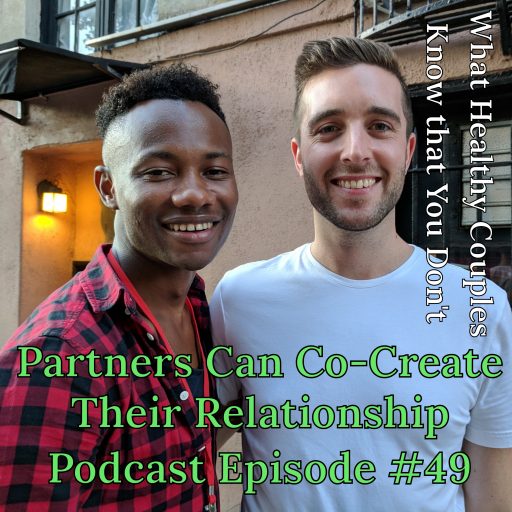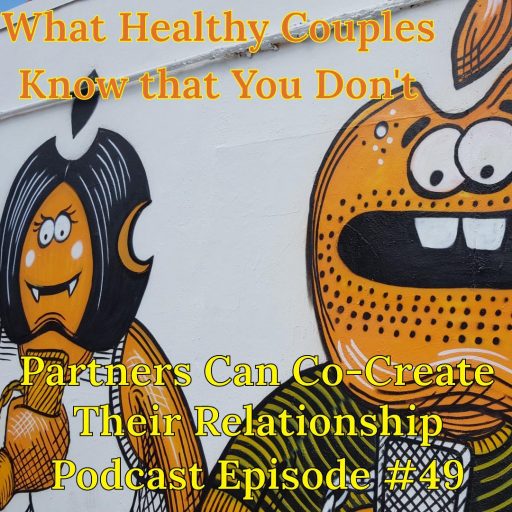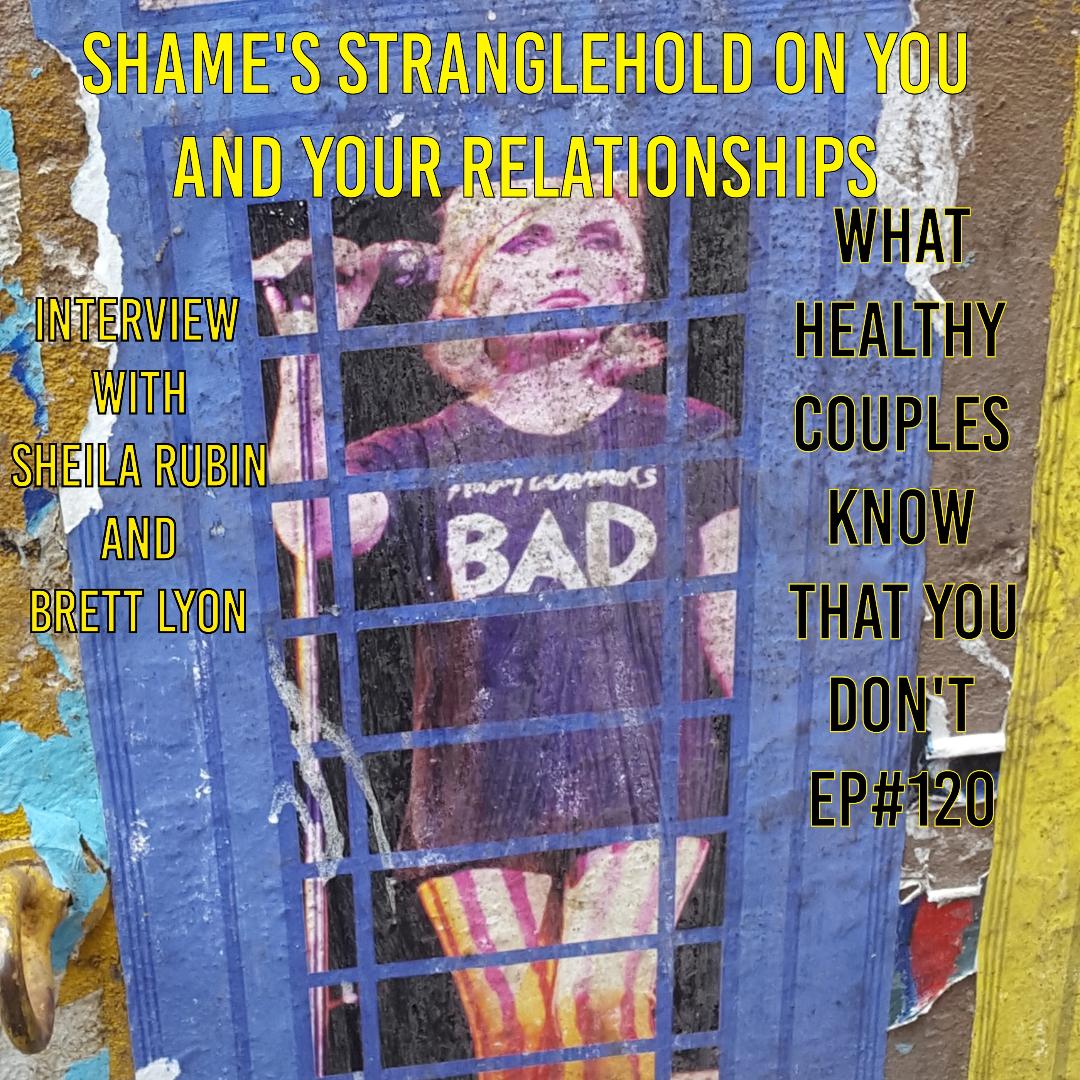
Partners can make choices to be a team by playing to their strengths. Learn more about co-creation by listening to this episode which is an interview; with Stuart N. Simon, LICSW.
Share the Love & Spread the Word
PLEASE Tweet or SHARE on Facebook (sooooo helpful)
Subscribe on Apple Podcasts: HERE & please leave a review. THANKS!!!!!
PLEASE LISTEN ABOVE or Read Below:
Interview with Stuart Simon LICSW who has has nearly 40 years experience working as a psychotherapist, consultant, coach, & trainer (in the USA & internationally). He is the author of several articles and chapters that focus on couples therapy. He is on the faculty of The Gestalt International Study Center, Cape Cod Training Program. He lives and works in Newton, Massachusetts.
What is Co-Creation? We get into relationships with all sorts of reasons but ultimately we want more than just what we have in our life individually. So we find somebody to join us and we’re looking to create a “they”, a “we”. For two people to form a couple, it’s not what one person does and then what another person does, it’s what do we create together. So co-creation, if you imagine two people, we gave them a task imagine we have a stick maybe it’s three feet long. We say okay, one of you put your hand on the top of the stick and one of you put your hand on the bottom of the stick and we want one of you to be the leader and one of you to be the follower and then move that stick around the room, it would be very tricky… it wouldn’t be possible to move the stick around the room without both people participating. So who the leader is and who the follower is becomes diffused very quickly because the leader can’t move the stick unless the follower joint. The follower can’t join unless, the leader gives some direction. It’s unclear how to go forward and no one can move the stick around the room without a co-created process.
Partners often arrive in therapy with a lot of shame and embarrassment, so what excites me about it is the idea that we’re going to look… I’m from the beginning going to be engaging with my couple in their “theyness”, the “we” that they have they created…

Partners are always co-creating, we may not notice it but we are always co-creating unless one person is physically stronger and overpowering the other person or there’s some sort of financial arrangement, where one feels utterly dependent and gets manipulated, we take those things off the table where there’s any kind of hierarchical or power relationship, everything a couple shows up with is co-created, so for example, if a couple comes in and one person is feeling like they never have a voice and the other person can’t it takes up a lot of space. The person who’s taking up a lot of space often doesn’t know, they don’t think of themselves as taking up a lot of space…
A partner who voices their concerns, has things to say, they know how to articulate their experience and often they wish the other person would speak up. The partner who doesn’t speak up as much often feels like there’s no space for them & maybe they go slower, they’re a little more refined about how they tune into their experience, so it takes them a little more time to put words and language to what their experiences are. The two partners don’t recognize that they both are creating; so the one who doesn’t speak up as much tends to leave more space for the other to speak up more often and the one that speaks up a lot tends to not notice that they’re not leaving any space for the other person. They don’t notice that it’s like a three-legged race, when you were a kid, you might have done a three-legged race where you are stumbling down the field together.Both partners have to participate in order for one person to be predominant.
Co-creation really offers a way to build and improve trust by increasing more positive interactions like the Gottman’s are always talking about.
A pattern I often see is when one person is very critical and the other person is very defensive; another way to frame this is that both partners know how to stand up for themselves. In other words if one person is very critical and the other person shrinks away from the criticism, they get quiet and withdraw then you have a real imbalance. My first step has been to get them to laugh at what strong forces the two of them are, they are indomitable forces & not willing to be dominated forces. It’s a way to recognize the strengths of both partners.
They’re going to end up in a stalemate because they’re both such strong forces. They met their match and isn’t it in a certain way probably what invited them into the relationship in the first place is that they found somebody that they couldn’t overwhelm, that could stand up to them. The problem is that they’re now stuck in being strong forces. It’s a more positive way to look at it.
I really want them to appreciate that even though it’s creating a problem for them, I do want them to see that they are with somebody that that can match them force for force and I want them to be able to laugh at it a little bit. When they do, then I want them to get interested that if they really want to change the pattern, it’s going to require both of them to change the pattern. The person who is being critical is often repeating something three times in three ways and if the other partner responds the same way all three times, they’re going to respond the same way the fourth time.
So I try to get them interested in what else the two of them could do, if they wanted to create a different outcome. It’s going to be important that the critical person gets interested in how their language is coming across, why is it that the other partner is just getting defensive? what are they doing that isn’t getting them what they want? because when somebody is critical, what they really want is to have the other person understand that they’re doing something that is extremely disappointing. So they have to find a different way to engage the party who they are critical of but just as similarly the person who’s feeling defensive doesn’t recognize that their defensiveness ends up inviting more criticism. That’s the recognition of the pattern that is co-created.













